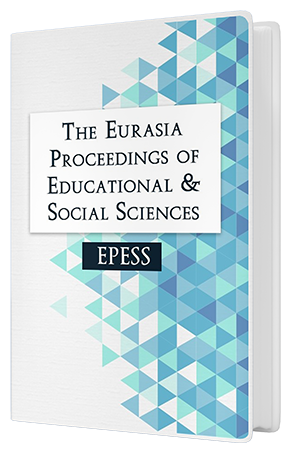KHALIFA UNIVERSITY OF SCIENCE, TECHNOLOGY AND RESEARCH (KUSTAR) STUDENTS’ ATTITUDES TOWARDS MATHEMATICS IN THE LIGHT OF VARIABLES SUCH AS GENDER, NATIONALITY, MATHEMATICS SCORES AND THE COURSE THEY ARE ATTENDING
Keywords:
Attitudes, mathematics, gender, nationality, course attendingAbstract
This study was aimed at identifying the attitudes of the students of Khalifa University towards mathematics .The sample of this study consisted of 88(out of 216) students distributed evenly according to gender. 56.9% of the sample were Emiraties and 53.1% were expatriates. The Attitude Towards Mathematics Inventory (ATMI) was implemented in collecting the data. The results of this study indicated that there were slight statistically significant differences between students’ attitudes towards mathematics and mathematics achievement scores, age, the course they are attending, students’ high school type, gender and their academic level. Additionally, the results indicated that there were statistically significant differences between self-confidence, enjoyment and value with and students’ nationalities. Expatriates students showed higher positive attitudes towards mathematics than the Emirati students. Also, the results showed that there was a slight statistical relationship between enjoyment and students’ academic level. Finally, this study revealed that 62.67% of the sample have self-confidence in dealing with mathematics, 84.4% felt that mathematics has a great value to them, and 75.49% showed enjoyment in dealing with mathematics.Downloads
Published
Issue
Section
License
Copyright (c) 2014 The Eurasia Proceedings of Educational and Social Sciences

This work is licensed under a Creative Commons Attribution-NonCommercial-ShareAlike 4.0 International License.
The articles may be used for research, teaching, and private study purposes. Any substantial or systematic reproduction, redistribution, reselling, loan, sub-licensing, systematic supply, or distribution in any form to anyone is expressly forbidden. Authors alone are responsible for the contents of their articles. The journal owns the copyright of the articles. The publisher shall not be liable for any loss, actions, claims, proceedings, demand, or costs or damages whatsoever or howsoever caused arising directly or indirectly in connection with or arising out of the use of the research material. All authors are requested to disclose any actual or potential conflict of interest including any financial, personal or other relationships with other people or organizations regarding the submitted work.




